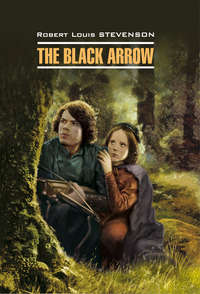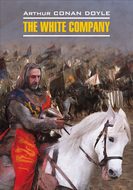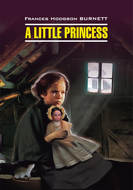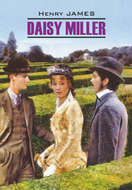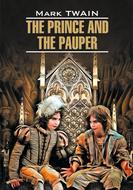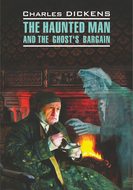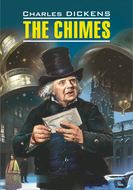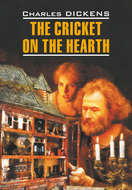Kitabı oku: «The Black Arrow / Черная Стрела. Книга для чтения на английском языке», sayfa 2
Book I
The Two Lads
Chapter I
At the Sign of the Sun in Kettley
Sir Daniel and his men lay in and about Kettley that night, warmly quartered and well patrolled. But the Knight of Tunstall was one who never rested from money-getting; and even now, when he was on the brink of an adventure which should make or mar him, he was up an hour after midnight to squeeze poor neighbours. He was one who trafficked greatly in disputed inheritances; it was his way to buy out the most unlikely claimant, and then, by the favour he curried with great lords about the king, procure unjust decisions in his favour; or, if that was too roundabout, to seize the disputed manor by force of arms, and rely on his influence and Sir Oliver’s cunning in the law to hold what he had snatched. Kettley was one such place; it had come very lately into his clutches; he still met with opposition from the tenants; and it was to overawe discontent that he had led his troops that way.
By two in the morning, Sir Daniel sat in the inn room, close by the fireside, for it was cold at that hour among the fens of Kettley. By his elbow stood a pottle of spiced ale. He had taken off his visored headpiece, and sat with his bald head and thin, dark visage resting on one hand, wrapped warmly in a sanguine-coloured cloak. At the lower end of the room about a dozen of his men stood sentry over the door or lay asleep on benches; and, somewhat nearer hand, a young lad, apparently of twelve or thirteen, was stretched in a mantle on the floor. The host of the Sun stood before the great man.
“Now, mark me, mine host,” Sir Daniel said, “follow but mine orders, and I shall be your good lord ever. I must have good men for head boroughs, and I will have Adam-a-More high constable; see to it narrowly. If other men be chosen, it shall avail you nothing; rather it shall be found to your sore cost. For those that have paid rent to Walsingham I shall take good measure – you among the rest, mine host.”
“Good knight,” said the host, “I will swear upon the cross of Holywood I did but pay to Walsingham upon compulsion. Nay, bully knight, I love not the rogue Walsinghams; they were as poor as thieves, bully knight. Give me a great lord like you. Nay; ask me among the neighbours, I am stout for Brackley.”
“It may be,” said Sir Daniel, drily. “Ye shall then pay twice.”
The innkeeper made a horrid grimace; but this was a piece of bad luck that might readily befall a tenant in these unruly times, and he was perhaps glad to make his peace so easily.
“Bring up yon fellow, Selden!” cried the knight.
And one of his retainers led up a poor, cringing old man, as pale as a candle, and all shaking with the fen fever.
“Sirrah,” said Sir Daniel, “your name?”
“An’t please your worship,” replied the man, “my name is Condall – Condall of Shoreby, at your good worship’s pleasure.”
“I have heard you ill reported on,” returned the knight. “Ye deal in treason, rogue; ye trudge the country leasing; y’are heavily suspicioned of the death of severals. How, fellow, are ye so bold? But I will bring you down.”
“Right honourable and my reverend lord,” the man cried, “here is some hodge-podge, saving your good presence. I am but a poor private man, and have hurt none.”
“The under-sheriff did report of you most vilely,” said the knight. “‘Seize me,’ saith he, ‘that Tyndal of Shoreby.’”
“Condall, my good lord; Condall is my poor name,” said the unfortunate.
“Condall or Tyndal, it is all one,” replied Sir Daniel, coolly. “For, by my sooth, y’are here, and I do mightily suspect your honesty. If you would save your neck, write me swiftly an obligation for twenty pound.”
“For twenty pound, my good lord!” cried Condall. “Here is midsummer madness! My whole estate amounteth not to seventy shillings.”
“Condall or Tyndal,” returned Sir Daniel, grinning, “I will run my peril of that loss.12 Write me down twenty, and when I have recovered all I may, I will be good lord to you, and pardon you the rest.”
“Alas! my good lord, it may not be; I have no skill to write,” said Condall.
“Well-a-day!” returned the knight. “Here, then, is no remedy. Yet I would fain have spared you, Tyndal, had my conscience suffered. Selden, take me this old shrew softly to the nearest elm, and hang me him tenderly by the neck, where I may see him at my riding. Fare ye well, good Master Condall, dear Master Tyndal; y’are post-haste for Paradise; fare ye then well!”
“Nay, my right pleasant lord,” replied Condall, forcing an obsequious smile, “an ye be so masterful, as doth right well become you, I will even, with all my poor skill, do your good bidding.”
“Friend,” quoth Sir Daniel, “ye will now write two score. Go to! Y’are too cunning for a livelihood of seventy shillings. Selden, see him write me this in good form, and have it duly witnessed.”
And Sir Daniel, who was a very merry knight, none merrier in England, took a drink of his mulled ale, and lay back, smiling.
Meanwhile, the boy upon the floor began to stir, and presently sat up and looked about him with a scare.
“Hither,” said Sir Daniel; and as the other rose at his command and came slowly towards him, he leaned back and laughed outright. “By the rood!” he cried, “a sturdy boy!”
The lad flashed crimson with anger, and darted a look of hate out of his dark eyes. Now that he was on his legs, it was more difficult to make certain of his age. His face looked somewhat older in expression, but it was as smooth as a young child’s; and in bone and body he was unusually slender, and somewhat awkward of gait.
“Ye have called me, Sir Daniel,” he said. “Was it to laugh at my poor plight?”
“Nay, now, let laugh,” said the knight. “Good shrew, let laugh, I pray you. An ye could see yourself, I warrant ye would laugh the first.”
“Well,” cried the lad, flushing, “ye shall answer this when ye answer for the other. Laugh while yet ye may!”
“Nay, now, good cousin,” replied Sir Daniel, with some earnestness, “think not that I mock at you, except in mirth, as between kinsfolk and singular friends. I will make you a marriage of a thousand pounds, go to! and cherish you exceedingly. I took you, indeed, roughly, as the time demanded; but from henceforth I shall ungrudgingly maintain and cheerfully serve you. Ye shall be Mrs. Shelton – Lady Shelton, by my troth! for the lad promiseth bravely. Tut! ye will not shy for honest laughter; it purgeth melancholy. They are no rogues who laugh, good cousin. Good mine host, lay me a meal now for my cousin, Master John. Sit ye down, sweetheart, and eat.”
“Nay,” said Master John, “I will break no bread. Since ye force me to this sin, I will fast for my soul’s interest. But, good mine host, I pray you of courtesy give me a cup of fair water; I shall be much beholden to your courtesy indeed.”
“Ye shall have a dispensation, go to!” cried the knight. “Shalt be well shriven, by my faith! Content you, then, and eat.”
But the lad was obstinate, drank a cup of water, and, once more wrapping himself closely in his mantle, sat in a far corner, brooding.
In an hour or two, there rose a stir in the village of sentries challenging and the clatter of arms and horses; and then a troop drew up by the inn door, and Richard Shelton, splashed with mud, presented himself upon the threshold.
“Save you, Sir Daniel,” he said.
“How! Dickie Shelton!” cried the knight; and at the mention of Dick’s name the other lad looked curiously across. “What maketh Bennet Hatch?”
“Please you, sir knight, to take cognizance of this packet from Sir Oliver, wherein are all things fully stated,” answered Richard, presenting the priest’s letter. “And please you farther, ye were best make all speed to Risingham; for on the way hither we encountered one riding furiously with letters, and by his report, my Lord of Risingham was sore bested, and lacked exceedingly your presence.”
“How say you? Sore bested?” returned the knight. “Nay, then, we will make speed sitting down, good Richard. As the world goes in this poor realm of England, he that rides softliest rides surest13. Delay, they say, begetteth peril; but it is rather this itch of doing that undoes men; mark it, Dick. But let me see, first, what cattle ye have brought. Selden, a link here at the door!”
And Sir Daniel strode forth into the village street, and, by the red glow of a torch, inspected his new troops. He was an unpopular neighbour and an unpopular master; but as a leader in war he was well beloved by those who rode behind his pennant. His dash, his proved courage, his forethought for the soldiers’ comfort, even his rough gibes, were all to the taste of the bold blades in jack and salet.
“Nay, by the rood!” he cried, “what poor dogs are these? Here be some as crooked as a bow, and some as lean as a spear. Friends, ye shall ride in the front of the battle; I can spare you, friends. Mark me this old villain on the piebald! A two-year mutton riding on a hog would look more soldierly! Ha! Clipsby, are ye there, old rat? Y’are a man I could lose with a good heart; ye shall go in front of all, with a bull’s-eye painted on your jack, to be the better butt for archery; sirrah, ye shall show me the way.”
“I will show you any way, Sir Daniel, but the way to change sides,” returned Clipsby, sturdily.
Sir Daniel laughed a guffaw.
“Why, well said!” he cried. “Hast a shrewd tongue in thy mouth, go to! I will forgive you for that merry word. Selden, see them fed, both man and brute.”
The knight re-entered the inn.
“Now, friend Dick,” he said, “fall to. Here is good ale and bacon. Eat, while that I read.”
Sir Daniel opened the packet, and as he read his brow darkened. When he had done he sat a little, musing. Then he looked sharply at his ward.
“Dick,” said he, “y’have seen this penny rhyme?”
The lad replied in the affirmative.
“It bears your father’s name,” continued the knight; “and our poor shrew of a parson is, by some mad soul, accused of slaying him.”
“He did most eagerly deny it,” answered Dick.
“He did?” cried the knight, very sharply. “Heed him not. He has a loose tongue14; he babbles like a jack-sparrow. Some day, when I may find the leisure, Dick, I will myself more fully inform you of these matters. There was one Duckworth shrewdly blamed for it; but the times were troubled, and there was no justice to be got.”
“It befell at the Moat House?” Dick ventured, with a beating at his heart.
“It befell between the Moat House and Holywood,” replied Sir Daniel, calmly; but he shot a covert glance, black with suspicion, at Dick’s face. “And now,” added the knight, “speed you with your meal; ye shall return to Tunstall with a line from me.”
Dick’s face fell sorely.
“Prithee, Sir Daniel,” he cried, “send one of the villains! I beseech you let me to the battle. I can strike a stroke, I promise you.”
“I misdoubt it not15,” replied Sir Daniel, sitting down to write. “But here, Dick, is no honour to be won. I lie in Kettley till I have sure tidings of the war, and then ride to join me with the conqueror. Cry not on cowardice; it is but wisdom, Dick; for this poor realm so tosseth with rebellion, and the king’s name and custody so changeth hands, that no man may be certain of the morrow. Toss-pot and Shuttle-wit run in, but my Lord Good-Counsel sits o’ one side, waiting.”
With that Sir Daniel, turning his back to Dick, and quite at the farther end of the long table, began to write his letter, with his mouth on one side, for this business of the Black Arrow stuck sorely in his throat.
Meanwhile, young Shelton was going on heartily enough with his breakfast, when he felt a touch upon his arm, and a very soft voice whispering in his ear.
“Make not a sign, I do beseech you,” said the voice, “but of your charity teach me the straight way to Holywood. Beseech you, now, good boy, comfort a poor soul in peril and extreme distress, and set me so far forth upon the way to my repose.”
“Take the path by the windmill,” answered Dick, in the same tone; “it will bring you to Till Ferry; there inquire again.”
And without turning his head, he fell again to eating. But with the tail of his eye he caught a glimpse of the young lad called Master John stealthily creeping from the room.
“Why,” thought Dick, “he is as young as I. ‘Good boy’ doth he call me? An I had known, I should have seen the varlet hanged ere I had told him. Well, if he goes through the fen, I may come up with him and pull his ears.”
Half an hour later, Sir Daniel gave Dick the letter, and bade him speed to the Moat House. And again, some half an hour after Dick’s departure, a messenger came, in hot haste, from my Lord of Risingham.
“Sir Daniel,” the messenger said, “ye lose great honour, by my sooth! The fight began again this morning ere the dawn, and we have beaten their van and scattered their right wing. Only the main battle standeth fast. An we had your fresh men, we should tilt you them all into the river. What, sir knight! Will ye be the last? It stands not with your good credit.”
“Nay,” cried the knight, “I was but now upon the march. Selden, sound me the tucket. Sir, I am with you on the instant. It is not two hours since the more part of my command came in, sir messenger. What would ye have? Spurring is good meat, but yet it killed the charger. Bustle, boys!”
By this time the tucket was sounding cheerily in the morning, and from all sides Sir Daniel’s men poured into the main street and formed before the inn. They had slept upon their arms, with chargers saddled, and in ten minutes five-score men-at-arms and archers, cleanly equipped and briskly disciplined, stood ranked and ready. The chief part were in Sir Daniel’s livery, murrey and blue, which gave the greater show to their array. The best armed rode first; and away out of sight, at the tail of the column, came the sorry reinforcement of the night before. Sir Daniel looked with pride along the line.
“Here be the lads to serve you in a pinch,” he said.
“They are pretty men, indeed,” replied the messenger. “It but augments my sorrow that ye had not marched the earlier.”
“Well,” said the knight, “what would ye? The beginning of a feast and the end of a fray, sir messenger;” and he mounted into his saddle. “Why! how now!” he cried. “John! Joanna! Nay, by the sacred rood! where is she? Host, where is that girl?”
“Girl, Sir Daniel?” cried the landlord. “Nay, sir, I saw no girl.”
“Boy, then, dotard!” cried the knight. “Could ye not see it was a wench? She in the murrey-coloured mantle – she that broke her fast with water, rogue – where is she?”
“Nay, the saints bless us! Master John, ye called him,” said the host. “Well, I thought none evil. He is gone. I saw him – her – I saw her in the stable a good hour agone; ’a was saddling a grey horse.”
“Now, by the rood!” cried Sir Daniel, “the wench was worth five hundred pound to me and more.”
“Sir knight,” observed the messenger, with bitterness, “while that ye are here, roaring for five hundred pounds, the realm of England is elsewhere being lost and won.”
“It is well said,” replied Sir Daniel. “Selden, fall me out with six crossbowmen; hunt me her down, I care not what it cost; but, at my returning, let me find her at the Moat House. Be it upon your head. And now, sir messenger, we march.”
And the troop broke into a good trot, and Selden and his six men were left behind upon the street of Kettley, with the staring villagers.
Chapter II
In the Fen
It was near six in the May morning when Dick began to ride down into the fen upon his homeward way. The sky was all blue; the jolly wind blew loud and steady; the windmill-sails were spinning; and the willows over all the fen rippling and whitening like a field of corn. He had been all night in the saddle, but his heart was good and his body sound and he rode right merrily.
The path went down and down into the marshy till he lost sight of all the neighbouring landmarks but Kettley windmill on the knoll behind him, and the extreme top of Tunstall Forest far before. On either hand there were great fields of blowing reeds and willows, pools of water shaking in the wind, and treacherous bogs, as green as emerald, to tempt and to betray the traveller. The path lay almost straight through the morass. It was already very ancient; its foundation had been laid by Roman soldiery16; in the lapse of ages much of it had sunk, and every here and there, for a few hundred yards, it lay submerged below the stagnant waters of the fen.
About a mile from Kettley, Dick came to one such break in the plain line of causeway, where the reeds and willows grew dispersedly like little islands and confused the eye. The gap, besides, was more than usually long; it was a place where any stranger might come readily to mischief; and Dick bethought him, with something like a pang, of the lad whom he had so imperfectly directed. As for himself, one look backward to where the windmill-sails were turning black against the blue of heaven – one look forward to the high ground of Tunstall Forest, and he was sufficiently directed and held straight on, the water washing to his horse’s knees, as safe as on a highway.
Half-way across, and when he had already sighted the path rising high and dry upon the farther side, he was aware of a great splashing on his right, and saw a grey horse, sunk to its belly in the mud, and still spasmodically struggling. Instantly, as though it had divined the neighbourhood of help, the poor beast began to neigh most piercingly. It rolled, meanwhile, a blood-shot eye, insane with terror; and as it sprawled wallowing in the quag, clouds of stinging insects rose and buzzed about it in the air.
“Alack!” thought Dick, “can the poor lad have perished? There is his horse, for certain – a brave grey! Nay, comrade, if thou criest to me so piteously, I will do all man can to help thee. Shalt not lie there to drown by inches!”
And he made ready his crossbow, and put a quarrel through the creature’s head.
Dick rode on after this act of rugged mercy, somewhat sobered in spirit, and looking closely about him for any sign of his less happy predecessor in the way.
“I would I had dared to tell him further,” he thought; “for I fear he has miscarried in the slough.”
And just as he was so thinking, a voice cried upon his name from the causeway side, and, looking over his shoulder, he saw the lad’s face peering from a clump of reeds.
“Are ye there?” he said, reining in. “Ye lay so close among the reeds that I had passed you by. I saw your horse bemired, and put him from his agony; which, by my sooth! an ye had been a more merciful rider, ye had done yourself. But come forth out of your hiding. Here be none to trouble you.17”
“Nay, good boy, I have no arms, nor skill to use them if I had,” replied the other, stepping forth upon the pathway.
“Why call me ‘boy’?” cried Dick. “Y’are not, I trow, the elder of us twain.”
“Good Master Shelton,” said the other, “prithee forgive me. I have none the least intention to offend. Rather I would in every way beseech your gentleness and favour, for I am now worse bested than ever, having lost my way, my cloak, and my poor horse. To have a riding-rod and spurs, and never a horse to sit upon! And before all,” he added, looking ruefully upon his clothes – “before all, to be so sorrily besmirched!”
“Tut!” cried Dick. “Would ye mind a ducking? Blood of wound or dust of travel – that’s a man’s adornment.”
“Nay, then, I like him better plain,” observed the lad. “But, prithee, how shall I do? Prithee, good Master Richard, help me with your good counsel. If I come not safe to Holywood, I am undone.”
“Nay,” said Dick, dismounting, “I will give more than counsel. Take my horse, and I will run awhile, and when I am weary we shall change again, that so, riding and running, both may go the speedier.”
So the change was made, and they went forward as briskly as they durst on the uneven causeway, Dick with his hand upon the other’s knee.
“How call ye your name?” asked Dick.
“Call me John Matcham,” replied the lad.
“And what make ye to Holywood?” Dick continued.
“I seek sanctuary from a man that would oppress me,” was the answer. “The good Abbot of Holywood is a strong pillar to the weak.”
“And how came ye with Sir Daniel, Master Matcham?” pursued Dick.
“Nay,” cried the other, “by the abuse of force! He hath taken me by violence from my own place; dressed me in these weeds; ridden with me till my heart was sick; gibed me till I could ’a’ wept; and when certain of my friends pursued, thinking to have me back, claps me in the rear to stand their shot! I was even grazed in the right foot, and walk but lamely. Nay, there shall come a day between us; he shall smart for all!18”
“Would ye shoot at the moon with a hand-gun?” said Dick. “’Tis a valiant knight, and hath a hand of iron. An he guessed I had made or meddled with your flight, it would go sore with me.”
“Ay, poor boy,” returned the other, “y’are his ward, I know it. By the same token, so am I, or so he saith; or else he hath bought my marriage – I wot not rightly which; but it is some handle to oppress me by.”
“Boy again!” said Dick.
“Nay, then, shall I call you girl, good Richard?” asked Matcham.
“Never a girl for me,” returned Dick. “I do abjure the crew of them!”
“Ye speak boyishly,” said the other. “Ye think more of them than ye pretend.”
“Not I,” said Dick, stoutly. “They come not in my mind. A plague of them, say I! Give me to hunt and to fight and to feast, and to live with jolly foresters. I never heard of a maid yet that was for any service, save one only; and she, poor shrew, was burned for a witch and the wearing of men’s clothes in spite of nature.”
Master Matcham crossed himself with fervour, and appeared to pray.
“What make ye?” Dick inquired.
“I pray for her spirit,” answered the other, with a somewhat troubled voice.
“For a witch’s spirit?” Dick cried. “But pray for her, an ye list; she was the best wench in Europe, was this Joan of Arc. Old Appleyard the archer ran from her, he said, as if she had been Mahoun. Nay, she was a brave wench.”
“Well, but, good Master Richard,” resumed Matcham, “an ye like maids so little, y’are no true natural man; for God made them twain by intention, and brought true love into the world, to be man’s hope and woman’s comfort.”
“Faugh!” said Dick. “Y’are a milksopping baby, so to harp on women. An ye think I be no true man, get down upon the path, and whether at fists, backsword, or bow and arrow, I will prove my manhood on your body.”
“Nay, I am no fighter,” said Matcham, eagerly. “I mean no tittle of offence. I meant but pleasantry. And if I talk of women, it is because I heard ye were to marry.”
“I to marry!” Dick exclaimed. “Well, it is the first I hear of it. And with whom was I to marry?”
“One Joan Sedley,” replied Matcham, colouring. “It was Sir Daniel’s doing; he hath money to gain upon both sides; and, indeed, I have heard the poor wench bemoaning herself pitifully of the match. It seems she is of your mind, or else distasted to the bridegroom.”
“Well! marriage is like death, it comes to all,” said Dick, with resignation. “And she bemoaned herself? I pray ye now, see there how shuttle-witted are these girls: to bemoan herself before that she had seen me! Do I bemoan myself? Not I. An I be to marry, I will marry dry-eyed! But if ye know her, prithee, of what favour is she?19 fair or foul? And is she shrewish or pleasant?”
“Nay, what matters it?” said Matcham. “An y’are to marry, ye can but marry. What matters foul or fair? These be but toys. Y’are no milksop, Master Richard; ye will wed with dry eyes, anyhow.”
“It is well said,” replied Shelton. “Little I reck.”
“Your lady wife is like to have a pleasant lord,” said Matcham.
“She shall have the lord Heaven made her for,” returned Dick. “I trow there be worse as well as better.”
“Ah, the poor wench!” cried the other.
“And why so poor?” asked Dick.
“To wed a man of wood,” replied his companion. “O me, for a wooden husband!”
“I think I be a man of wood, indeed,” said Dick, “to trudge afoot the while you ride my horse; but it is good wood, I trow.”
“Good Dick, forgive me,” cried the other. “Nay, y’are the best heart in England; I but laughed. Forgive me now, sweet Dick.”
“Nay, no fool words,” returned Dick, a little embarrassed by his companion’s warmth. “No harm is done. I am not touchy, praise the saints.”
And at that moment the wind, which was blowing straight behind them as they went, brought them the rough flourish of Sir Daniel’s trumpeter.
“Hark!” said Dick, “the tucket soundeth.”
“Ay,” said Matcham, “they have found my flight, and now I am unhorsed!” and he became pale as death.
“Nay, what cheer!” returned Dick. “Y’have a long start, and we are near the ferry. And it is I, methinks, that am unhorsed.”
“Alack, I shall be taken!” cried the fugitive. “Dick, kind Dick, beseech ye help me but a little!”
“Why, now, what aileth thee?” said Dick. “Methinks I help you very patently. But my heart is sorry for so spiritless a fellow! And see ye here, John Matcham – sith John Matcham is your name – I, Richard Shelton, tide what betideth, come what may20, will see you safe in Holywood. The saints so do to me again if I default you. Come, pick me up a good heart, Sir White-face. The way betters here; spur me the horse. Go faster! faster! Nay, mind not for me; I can run like a deer.”
So, with the horse trotting hard, and Dick running easily alongside, they crossed the remainder of the fen, and came out upon the banks of the river by the ferryman’s hut.
I will run my peril of that loss. – (уст.) Эту потерю я как-нибудь переживу.
[Закрыть]
he that rides softliest rides surest – (уст.) тише едешь – дальше будешь
[Закрыть]
He has a loose tongue – (разг.) У него язык без костей
[Закрыть]
I misdoubt it not = I don’t doubt it, я не сомневаюсь
[Закрыть]
by Roman soldiery – (уст.) римскими солдатами (в I в. н. э.)
[Закрыть]
Here be none to trouble you. – (уст.) Здесь тебя никто не обидит.
[Закрыть]
he shall smart for all! – (уст.) он за все ответит!
[Закрыть]
of what favour is she? – (уст.) как она выглядит?
[Закрыть]
come what may – (уст.) будь что будет
[Закрыть]
